Grad Research Spotlight
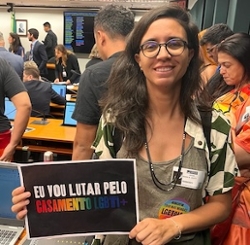
An Interview with Marina Segatti
Marina Segatti is pursuing a Feminist Studies PhD with a designated emphasis in Critical Race and Ethnic Studies and Latin American & Latino Studies. She sat down with fellow CRES DEs and grad reps Anny Mogollon and Em Padilla to discuss her research on and fieldwork in Brazil.Migration Circuit
CRES DE, Kiley McLaughlin (Literatures) was interviewed at the end of the 2021-2022 academic year by fellow CRES DE, Talib Jabbar (History of Consciousness) about the various aspects of her dissertation project.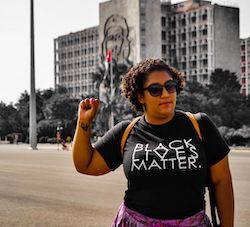
An Interview with Theresa Hice-Fromille
CRES DE, Theresa Hice-Fromille (Sociology), spoke with fellow CRES DE and grad rep, Jane Komori to discuss her love of travel and research around community-based roots travel organization (CBRTO)--an educational space in which youth participants learned about themselves and Blackness and came to form their racial identity.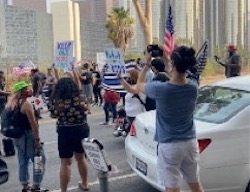
Coming of Age in South Central: Gender Ideologies, Youth Activism, and The Carceral State
CRES Designated Emphasis (DE) student, Uriel Serrano (Sociology), sat down with fellow CRES DE and grad rep, Jane Komori at the end of last quarter to discuss his research in youth studies, critical race theory, and critical carceral studies.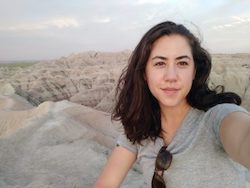
THI Graduate Profile
Noya Kansky is a PhD Student in the Feminist Studies Department at UC Santa Cruz researching the history and enduring legacies of settler colonialism. In 2019, Kansky was a THI Public Fellow at the Heart Mountain Interpretive Center near Cody, Wyoming. The Center sits on the site of what was once the Heart Mountain “Relocation Center”: an internment camp which held incarcerated Japanese-Americans during the Second World War. Among other things, she worked in the organization’s archive cataloging and digitizing the personal records of a former incarceree: Estelle Ishigo.
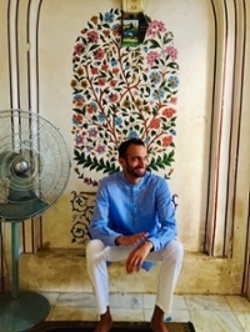
Queer Convoys: American Imperial Militarism and Global Asian Cultural Production
CRES DE in Literature Department, Talib Jabbar, describes how their work searches for a queer politics in the age of permanent war, a politics that dissents the normativizing logic of American-led imperial warfare.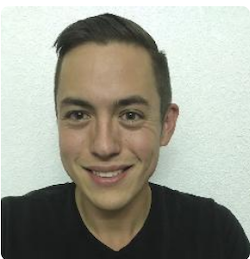
An Interview with Jane Komori, also a CRES DE in the Department of History of Consciousness
Christian Alvarado, a CRES DE in the Department of History of Consciousness discusses with Jane Komori, also a CRES DE in the same department, his interdisciplinary research around education and culture in (anti)colonial (as well as post-colonial) Kenya.Everyday Resistance
CRES grad student Christine Rosales traces forms of everyday resistance for Latinx women in the Santa Cruz area.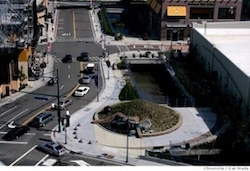
For the Glory of Gold and Bones: Spiritual Accumulation and Grave Theft in the Construction of the San Francisco Bay Area
CRES graduate Claire Urbanski's project explores the ways that the San Francisco Bay area was able to develop by evacuation, desecration, and museum collections of Ohlone dead. This is done in order to question how these bodies contribute to settler colonial expansion and capital production.Imperial Knowledges: Bounding the (Trans)itory Body
CRES graduate student Dana Ahern shares their project and how it tracks the development and movement of transgender knowledge and bodies. While also looking for the origin points of transgender medicine and research and examines the histories and presences of colonialism and imperialism required to make transgender medicine possible, and so much more.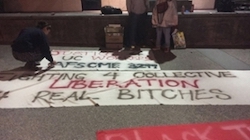
Muslim Students Capture Campus Climate: A Photovoice Project
While accommodations such as halaal food options and temporary prayers spaces were offered to students, more permanent solutions were still lacking. To-date, UC Santa Cruz remains the only UC campus without a dedicated prayer space for the Muslim student community.
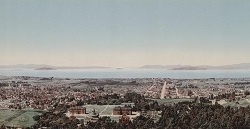
Settler Colonial Imaginaries and the naming of the first UC Campus
In spring of 1866, the Trustees of what would become the first public university of the nascent state of California were gathered at the grounds of the proposed campus. Inspired by the views, Trustee Frederick Billings recited the stanzas, “Westward the course of empire takes its way….,” recalling George Berkeley, Bishop of Cloyne and patron of learning. Click to read more!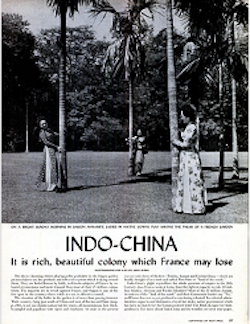
Images of the Vietnamese Human: Visuality and the U.S. War in Southeast Asia
Most college students in the U.S. are exposed to the visual archive of war in Southeast Asia from 1964 to 1973 through news footage used in documentaries, fictionalfilmic depictions, and/or iconic photographs. Decades later, we continue to see similar types of depictions in other areas of “humanitarian concern” in order to accumulate public support for militarized intervention. Learn more about how visuals can impact the distortion of history in Trung's research.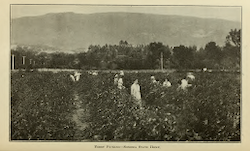
California Eugenics and The Making of a Liberal State
California’s history of eugenics came under public scrutiny when an investigative journalist uncovered evidence that non-consensual reproductive sterilizations took place in women’s prisons as recently as 2010. My interest in the investigation was grounded in hearing similar stories of unethical medical practice within prisons while volunteering as a prisoner advocate for over 8 years. Learn more about California’s long history of eugenics policies and practices on the bodily autonomy of prisoners.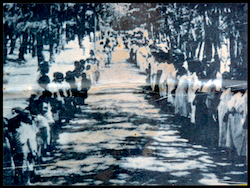
Fourth Death of Hansenin
Hansenin*, or Hansen’s disease (leprosy) patients in South Korea, have historically described themselves as experiencing three deaths. The first death corresponds to their diagnosis, the second to their mandatory autopsy, and the third to their cremation and burial in a designated charnel house on Sorok Island. Learn more about the fourth death and Ka-eul's research.
